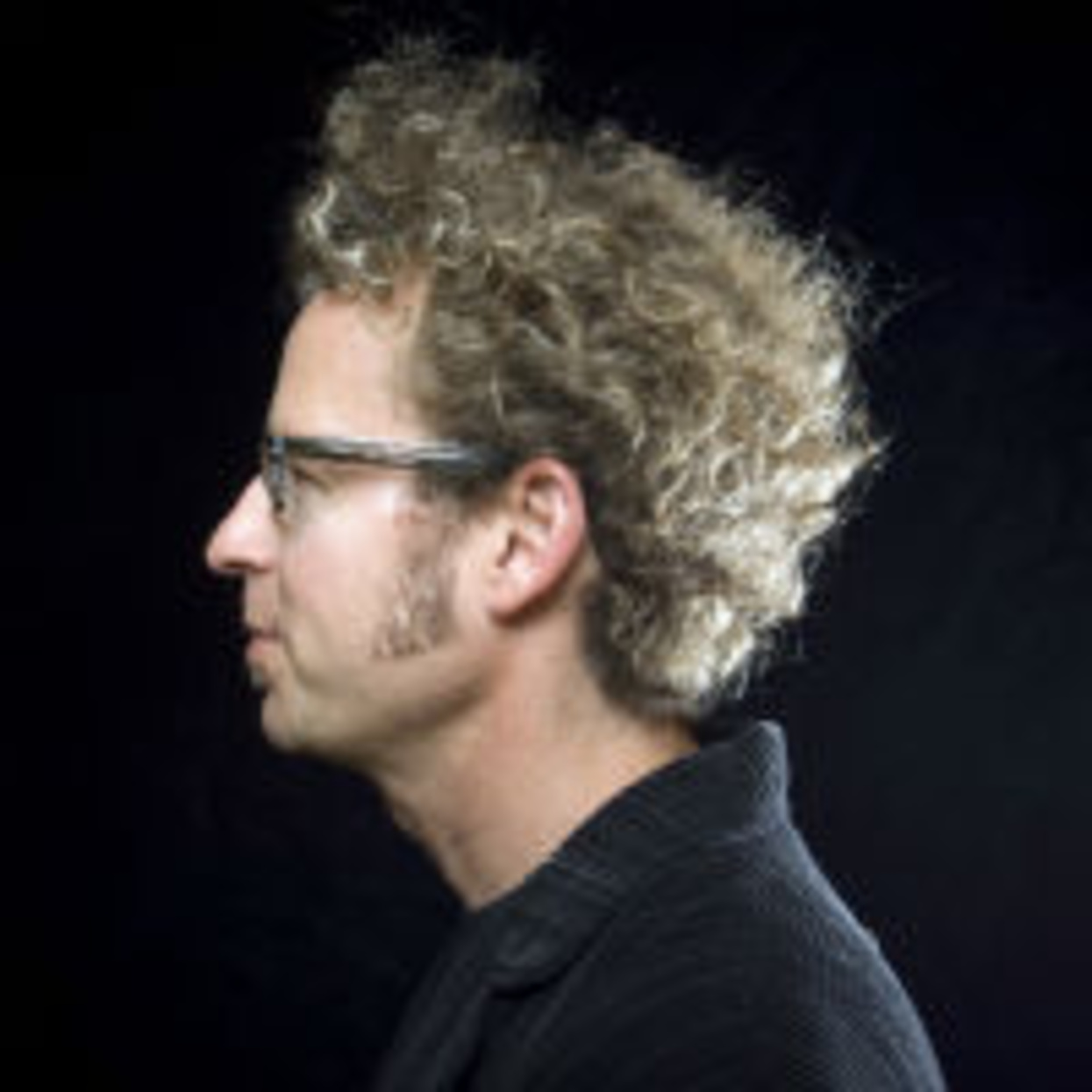Meet Ken Goldberg

The Berkeley Center for New Media is turning 10! To celebrate, over the next ten months leading up to our anniversary in September 2014, we’re sharing ten stories of BCNM’s life so far. This month, hear how BCNM professor Ken Goldberg built the Art, Technology, and Culture Colloquium to draw together humanists and technologists and inspire new collaborations.
A roboticist, artist, critic, filmmaker, scientist, teacher, and academic, Ken Goldberg has long been pushing the boundaries of art and technology as he blends the line between research and artistic expression and breaks the barriers between disciplines.
When Ken arrived at UC Berkeley in the mid 90s, the Internet had just appeared on the scene, and in the Bay Area people were both excited for an interconnected future, and suspicious of the potential dark consequences the new technology would produce. Immersed in both the hard sciences, which were thrilled by these innovations, and in the arts and humanities, which were discussing these changes more critically, Ken sought to find a space in which both fields could interact and gain perspective on the transformations taking place. These efforts gave birth to the now seventeen year old Art, Technology, and Culture Colloquium (ATC).
At its inception, the management of the ATC was largely a one-man juggling act, with Ken organizing each individual lecture and developing the series’ trajectory largely on his own. While a demanding task, he was able to design the ATC to bring out thinkers, performers, and tinkerers who were pushing forward critical dialogue about how technology and society were interacting, while highlighting people creating new and thought-provoking technological innovation. Speakers in the ATC series have been and continue to be in the vanguard of critics and innovators in the societal discussion of technology and humanity, with certain issues of Internet user privacy, robot and human interactions, and the dynamic relationship between people and the virtual world being presented at ATC lectures years before becoming topics of popular discussion. Since it first began, the ATC series has not only proven popular at Cal and in the Bay Area, but has also garnered international recognition, having hosted more than 160 lecturers from around the world.
In part through the ATC series, Ken was able to meet a host of like-minded faculty and affiliates interested in creating an academic institution that could facilitate research on the intersection of technology and society through the lens of new media. As this cohort sought to further explore the type of issues and questions that the ATC lectures were continually raising, the need for an interdisciplinary center became clear. With Berkeley’s proximity and connections to Silicon Valley, Cal was in the right place at the right time to build the Center for New Media. Ken and the other co-founders of the BCNM therefore fought for the faculty chairs, funding, and facilities that would make this dream a reality, using the ATC as a key connecting program that garnered the necessary critical mass of institutional support and funders.
Ken remains active in the continuing development of the BCNM, while still pursuing his many research endeavours, which include the California Report Card, an initiative to increase Californians’ participation in government, and an ongoing cloud robotics collaboration with Google. Having helped shape the evolution of the BCNM thus far, Ken continues to be impressed by the dedication of our faculty and the creativity of our students. Ken quotes M. Kranzberg, "technology is neither good, nor bad, nor neutral," and predicts that BCNM will have no shortage of work in the years to come.
Interested in creating a new fund that encourages international exchanges with peer institutions? Or a grant to provoke interdisciplinary collaboration? Support BCNM in its mission to bring together the humanities, arts, and sciences to critically analyze and shape developments in new media from cross-disciplinary and global perspectives by donating today. If you have other ideas to help develop the future of BCNM, please contact us as well.
